“If _____[I do this] _____, then _____[this]_____ will happen.”
Sound familiar? It should. This formulaic approach to making a statement about what you “think” will happen is the basis of most science fair projects and much scientific exploration.
Step by Step
You can see from the basic outline of the Scientific Method below that writing your hypothesis comes early in the process:
- Ask a Question
- Do Background Research
- Construct a Hypothesis
- Test Your Hypothesis by Doing an Experiment
- Analyze Your Data and Draw a Conclusion
- Communicate Your Results
Following the scientific method. we come up with a question that we want to answer, we do some initial research, and then before we set out to answer the question by performing an experiment and observing what happens, we first clearly identify what we “think” will happen.
We make an “educated guess.”
We write a hypothesis.
We set out to prove or disprove the hypothesis.
What you “think” will happen, of course, should be based on your preliminary research and your understanding of the science and scientific principles involved in your proposed experiment or study. In other words, you don’t simply “guess.” You’re not taking a shot in the dark. You’re not pulling your statement out of thin air. Instead, you make an “educated guess” based on what you already know and what you have already learned from your research.
If you keep in mind the format of a well-constructed hypothesis, you should find that writing your hypothesis is not difficult to do. You’ll also find that in order to write a solid hypothesis, you need to understand what your variables are for your project. It’s all connected!
If I never water my plant, it will dry out and die.
That seems like an obvious statement, right? The above hypothesis is too simplistic for most middle- to upper-grade science projects, however. As you work on deciding what question you will explore, you should be looking for something for which the answer is not already obvious or already known (to you). When you write your hypothesis, it should be based on your “educated guess” not on known data. Similarly, the hypothesis should be written before you begin your experimental proceduresnot after the fact.
Our staff scientists offer the following tips for thinking about and writing good hypotheses.
- The question comes first. Before you make a hypothesis, you have to clearly identify the question you are interested in studying.
- A hypothesis is a statement, not a question. Your hypothesis is not the scientific question in your project. The hypothesis is an educated, testable prediction about what will happen.
- Make it clear. A good hypothesis is written in clear and simple language. Reading your hypothesis should tell a teacher or judge exactly what you thought was going to happen when you started your project.
- Keep the variables in mind. A good hypothesis defines the variables in easy-to-measure terms, like who the participants are, what changes during the testing, and what the effect of the changes will be. (For more information about identifying variables, see: Variables in Your Science Fair Project .)
- Make sure your hypothesis is “testable.” To prove or disprove your hypothesis, you need to be able to do an experiment and take measurements or make observations to see how two things (your variables) are related. You should also be able to repeat your experiment over and over again, if necessary.
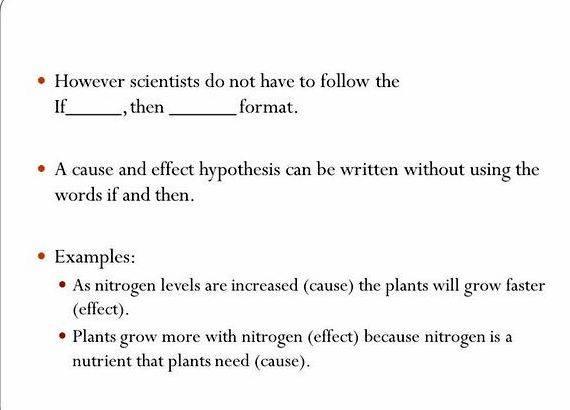
To create a “testable” hypothesis make sure you have done all of these things:
- Thought about what experiments you will need to carry out to do the test.
- Identified the variables in the project.
- Included the independent and dependent variables in the hypothesis statement. (This helps ensure that your statement is specific enough.
Putting it in Action
To help demonstrate the above principles and techniques for developing and writing solid, specific, and testable hypotheses, Sandra and Kristin, two of our staff scientists, offer the following good and bad examples.
When there is less oxygen in the water, rainbow trout suffer more lice.
Kristin says: “This hypothesis is good because it is testable, simple, written as a statement, and establishes the participants (trout ), variables (oxygen in water, and numbers of lice ), and predicts effect (as oxygen levels go down, the numbers of lice go up ).”
Our universe is surrounded by another, larger universe, with which we can have absolutely no contact.
Kristin says: “This statement may or may not be true, but it is not a scientific hypothesis. By its very nature, it is not testable. There are no observations that a scientist can make to tell whether or not the hypothesis is correct. This statement is speculation, not a hypothesis.”
Aphid-infected plants that are exposed to ladybugs will have fewer aphids after a week than aphid-infected plants which are left untreated.
Sandra says: “This hypothesis gives a clear indication of what is to be tested (the ability of ladybugs to curb an aphid infestation ), is a manageable size for a single experiment, mentions the independent variable (ladybugs ) and the dependent variable (number of aphids ), and predicts the effect (exposure to ladybugs reduces the number of aphids ).”
Ladybugs are a good natural pesticide for treating aphid infected plants.
Sandra says: “This statement is not ‘bite size.’ Whether or not something is a ‘good natural pesticide’ is too vague for a science fair project. There is no clear indication of what will be measured to evaluate the prediction.”
Hypotheses in History
Throughout history, scientists have posed hypotheses and then set out to prove or disprove them. Staff Scientist Dave reminds that scientific experiments become a dialogue between and among scientists and that hypotheses are rarely (if ever) “eternal.” In other words, even a hypothesis that is proven true may be displaced by the next set of research on a similar topic, whether that research appears a month or a hundred years later.
A look at the work of Sir Isaac Newton and Albert Einstein, more than 100 years apart, shows good hypothesis-writing in action.
As Dave explains, “A hypothesis is a possible explanation for something that is observed in nature. For example, it is a common observation that objects that are thrown into the air fall toward the earth. Sir Isaac Newton (1643-1727) put forth a hypothesis to explain this observation, which might be stated as ‘objects with mass attract each other through a gravitational field.'”
Newton’s hypothesis demonstrates the techniques for writing a good hypothesis: It is testable. It is simple. It is universal. It allows for predictions that will occur in new circumstances. It builds upon previously accumulated knowledge (e.g. Newton’s work explained the observed orbits of the planets).
“As it turns out, despite its incredible explanatory power, Newton’s hypothesis was wrong,” says Dave. “Albert Einstein (1879-1955) provided a hypothesis that is closer to the truth, which can be stated as ‘objects with mass cause space to bend.’ This hypothesis discards the idea of a gravitational field and introduces the concept of space as bendable. Like Newton’s hypothesis, the one offered by Einstein has all of the characteristics of a good hypothesis.”
“Like all scientific ideas and explanations,” says Dave, “hypotheses are all partial and temporary, lasting just until a better one comes along.”
That’s good news for scientists of all ages. There are always questions to answer and educated guesses to make!
If your science fair is over, leave a comment here to let us know what your hypothesis was for your project.
Writing your hypothesis is an important step of your science project. After reading the background material and carefully reviewing the procedure you will be using, what do you think will happen? The hypothesis will take the form of a statement that predicts what will happen to the dependent variable when the independent variable changes. If you click the “Project Guide” tab and select “Hypothesis” from the list, you will find resources and examples that may help you.
Something is wrong with this website everytime I search Steps of the Scientific Questions it allways says Scientific method and im only ten and need examples of questions of scienfific help me. >.
Hi. You can view our resource on “Science Questions” by clicking the “Project Guide” tab on the Science Buddies site (above) and then clicking the “Your Question” link in the list. (It’s near the top.)
Hi,Im doing my science project on “What is the point of boiling?” and I was wondering if this sounds like a good hypothesis? “If I put the water in/on an increasingly hot surface boiling will begin to happen.”
What is a Hypothesis?
A hypothesis is a tentative, testable answer to a scientific question. Once a scientist has a scientific question she is interested in, the scientist reads up to find out what is already known on the topic. Then she uses that information to form a tentative answer to her scientific question. Sometimes people refer to the tentative answer as “an educated guess.” Keep in mind, though, that the hypothesis also has to be testable since the next step is to do an experiment to determine whether or not the hypothesis is right!
A hypothesis leads to one or more predictions that can be tested by experimenting.
Predictions often take the shape of “If ____then ____” statements, but do not have to. Predictions should include both an independent variable (the factor you change in an experiment) and a dependent variable (the factor you observe or measure in an experiment). A single hypothesis can lead to multiple predictions, but generally, one or two predictions is enough to tackle for a science fair project.
Examples of Hypotheses and Predictions
How does the size of a dog affect how much food it eats?
Larger animals of the same species expend more energy than smaller animals of the same type. To get the energy their bodies need, the larger animals eat more food.
If I let a 70-pound dog and a 30-pound dog eat as much food as they want, then the 70-pound dog will eat more than the 30-pound dog.
Does fertilizer make a plant grow bigger?
Plants need many types of nutrients to grow. Fertilizer adds those nutrients to the soil, thus allowing plants to grow more.
If I add fertilizer to the soil of some tomato seedlings, but not others, then the seedlings that got fertilizer will grow taller and have more leaves than the non-fertilized ones.
Does an electric motor turn faster if you increase the current?
Electric motors work because they have electromagnets inside them, which push/pull on permanent magnets and make the motor spin. As more current flows through the motor’s electromagnet, the strength of the magnetic field increases, thus turning the motor faster.
If I increase the current supplied to an electric motor, then the RPMs (revolutions per minute) of the motor will increase.
Is a classroom noisier when the teacher leaves the room?
Teachers have rules about when to talk in the classroom. If they leave the classroom, the students feel free to break the rules and talk more, making the room nosier.
If I measure the noise level in a classroom when a teacher is in it and when she leaves the room, then I will see that the noise level is higher when my teacher is not in my classroom.
What if My Hypothesis is Wrong?
What happens if, at the end of your science project, you look at the data you have collected and you realize it does not support your hypothesis? First, do not panic! The point of a science project is not to prove your hypothesis right. The point is to understand more about how the natural world works. Or, as it is sometimes put, to find out the scientific truth. When scientists do an experiment, they very often have data that shows their starting hypothesis was wrong. Why? Well, the natural world is complexit takes a lot of experimenting to figure out how it worksand the more explanations you test, the closer you get to figuring out the truth. For scientists, disproving a hypothesis still means they gained important information, and they can use that information to make their next hypothesis even better. In a science fair setting, judges can be just as impressed by projects that start out with a faulty hypothesis; what matters more is whether you understood your science fair project, had a well-controlled experiment, and have ideas about what you would do next to improve your project if you had more time. You can read more about a science fair judge’s view on disproving your hypothesis here.
It is worth noting, scientists never talk about their hypothesis being “right” or “wrong.” Instead, they say that their data “supports” or “does not support” their hypothesis. This goes back to the point that nature is complexso complex that it takes more than a single experiment to figure it all out because a single experiment could give you misleading data. For example, let us say that you hypothesize that earthworms do not exist in places that have very cold winters because it is too cold for them to survive. You then predict that you will find earthworms in the dirt in Florida, which has warm winters, but not Alaska, which has cold winters. When you go and dig a 3-foot by 3-foot-wide and 1-foot-deep hole in the dirt in those two states, you discover Floridian earthworms, but not Alaskan ones. So, was your hypothesis right? Well, your data “supported” your hypothesis, but your experiment did not cover that much ground. Can you really be sure there are no earthworms in Alaska? No. Which is why scientists only support (or not) their hypothesis with data, rather than proving them. And for the curious, yes there are earthworms in Alaska.
Hypothesis Checklist
What Makes a Good Hypothesis?


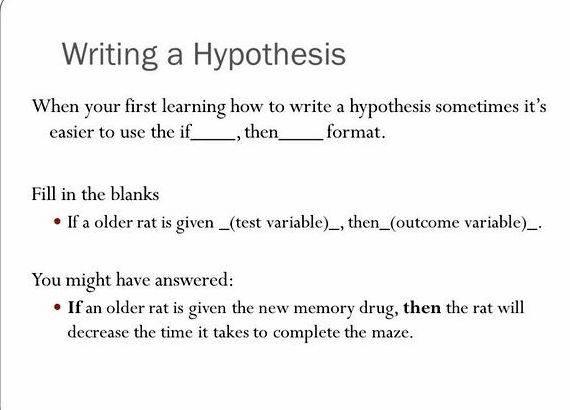

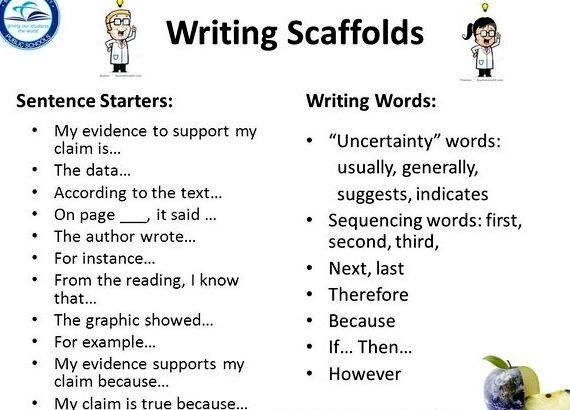

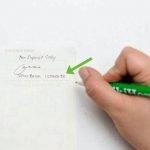 Writing a check to deposit in your own account
Writing a check to deposit in your own account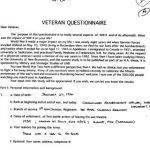 Writing questionnaires for dissertations samples
Writing questionnaires for dissertations samples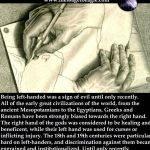 Writing with your left hand is immorality
Writing with your left hand is immorality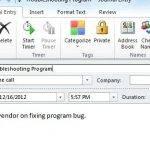 Track your time in outlook using journal writing
Track your time in outlook using journal writing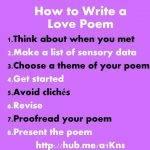 Writing a love poem to your wife
Writing a love poem to your wife






